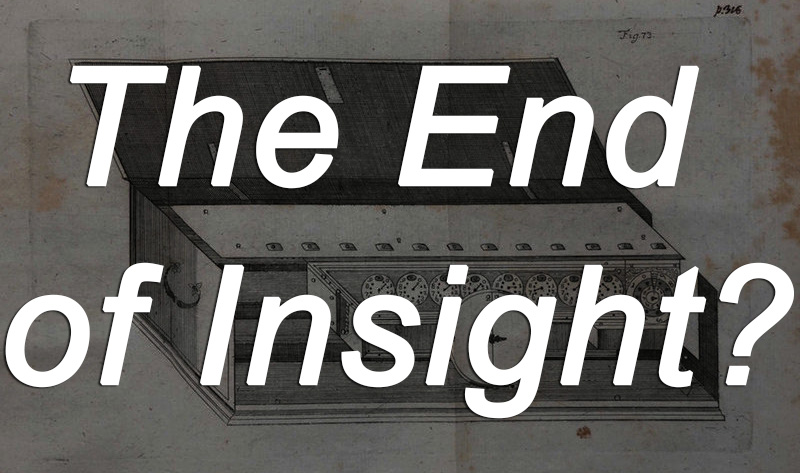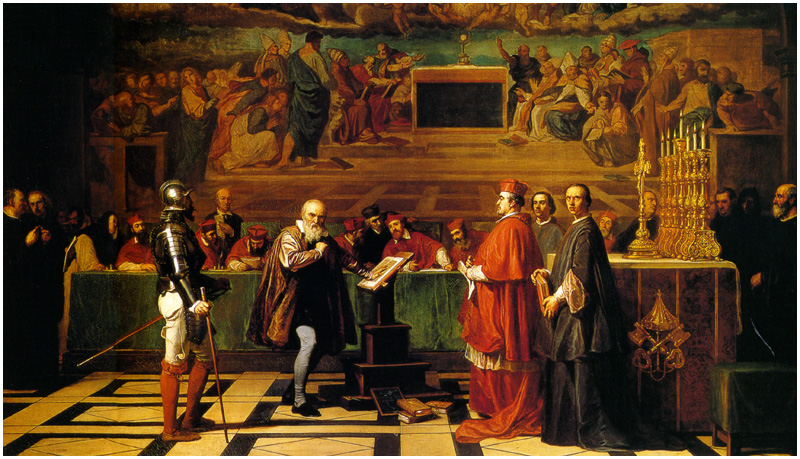Past CSPO Events
- March 29, 2017CSPO DC
The End of Insight?
Ed Finn launches the Spring 2017 "Issues in Science and Technology" in this CSPO Conversations event

Drawing from his essay in the Spring 2017 Issues in Science and Technology and from his new book, What Algorithms Want: Imagination in the Age of Computing, Ed Finn will explore how computer-generated knowledge is affecting scientific research, and how humans can become better users and architects of these powerful algorithms.
Edward Finn
- March 21, 2017
- January 27, 2017CSPO DC
Confronting Scientific Controversies: Do Facts Matter?
Launch event for the Winter 2017 Issues in Science and Technology

In science journalism, topics like genetically modified organisms, climate change, and vaccines have become so controversial that reporting on them can endanger one’s career. How have we gotten here? What are the consequences of such a toxic situation? What deeper disagreements are at play in these scientific controversies? Will understanding them help society address these broader issues?
Keith Kloor, Dan Hicks
- December 09, 2016CSPO DC - New Tools for Science Policy
Future Conflict & Emerging Technologies
This New Tools seminar explores the rapidly evolving environment for conflict, examining how destabilizing geopolitical factors and fast-moving technologies are making familiar institutions and assumptions questionable, if not obsolete.
Rapid advances in technology are making the world more complex, interconnected, and dangerous—while undermining the long-standing tools, institutions, and assumptions we have developed to manage conflict. From the digital frontier of cyber conflict to the use of autonomous lethal military robots, the arenas, actors, and objectives of modern conflict are changing in unpredictable ways. Political upheavals at home and abroad have only intensified the sense that we are entering uncharted territory.
Navigating this new geopolitical landscape requires understanding how emerging military and security technologies can affect strategy, warfare, and geopolitics. For our next New Tools for Science Policy seminar, join ASU Professor Braden Allenby and The Intercept national security reporter Sharon Weinberger as they discuss the shifting dynamics of modern conflict.Braden Allenby, Sharon Weinberger
- October 21, 2016CSPO DC - New Tools for Science Policy
The Illusion of Average: Renewing Research Infrastructure
When the Differences Matter: Implications for Research Infrastructure in an Age of Personalization
In this talk, Dr. William T. Riley and Paul Tarini discuss their experiences with establishing research portfolios to support research in an age of personalization. Dr. Riley provides insights into public sector management based on his work with the Precision Medicine Initiative and to transition the National Institutes of Health’s Office of Behavioral and Social Sciences Research (OBSSR) to a “data rich” endeavor integrating behavioral, social, and biomedical sciences for human health outcomes. He also speaks about balancing this transition in an office with a policy advising and public communications mission. Mr. Tarini discusses the goals and mission of the Pioneering Ideas portfolio within the Robert Wood Johnson Foundation (RWJF). His particular emphasis is on cultivating research at boundary of new modes of inquiry and discovery for a national “Culture of Health.” Dr. Eric Hekler moderates the session to draw out questions, challenges, and strategies facing public and private research managers advancing scientific research for human health.
Eric Hekler, William Riley, Paul Tarini
- September 23, 2016CSPO DC - New Tools for Science Policy
The Illusion of Average: An Open Science Approach to Research
Improving Scientific Research in the Age of Personalization and Open Data
Public participation for science or advocacy has an inconsistent history of effectiveness. New tools for crowdsourcing and challenge platforms have unflattering track records, revealing the current limits of technologies to enable the centralization or decentralization of power and influence. Local expertise can be harnessed toward a new reality in which communities provide feedback on their own conditions. When challenges arise, publics equipped with new tools can legitimately participate by studying their circumstances, testing alternatives for improving their communities, and advocating for the actions that best reflect their current values. Further, these strategies can be tailored to local realities to increase the likelihood of successful adoption and implementation.
Erik Johnston, Darlene Cavalier
- September 09, 2016CSPO DC - New Tools for Science Policy
The Illusion of Average: Implications for Scientists
Improving Scientific Research in the Age of Personalization and Open Data
In this conversation, we focus on the changing role of scientists when “on average” provides increasingly less useful information. Specifically, we present “agile science” as an organizing structure for generating and curating scientific evidence that can feasibly better embrace individual and contextual differences. Agile science draws from a variety of domains, but, at its core, builds on the logic of modularity that is central to today’s complex computing systems (e.g., operating systems, the Internet). We provide some active case studies of this approach in behavioral science, and discuss changes to the current roles and activities of researchers implied by agile science process, particularly for generating evidence to support decision-making on the “right” health intervention for specific individuals, in context, and over time.
Eric Hekler, Predrag Klasnja
- June 15, 2016CSPO DC
Future Directions of Usable Science for Rangeland Sustainability
As funding for rangeland research becomes more difficult to secure, researchers and funding organizations must ensure that the information needs of public and private land managers are met. Usable science that involves the intended end users through the scientific enterprise and gives rise to improved outcomes and informed management on the ground should be emphasized. The Sustainable Rangelands Roundtable workshop on Future Directions of Usable Science for Rangeland Sustainability brought together university and agency researchers, public and private land managers and producers, non-governmental organizations, and representatives of funding agencies and organizations to initiate the process of charting a research agenda for future directions of usable science for rangeland sustainability. Workshop outcomes address issues and research questions for soil health, water, vegetation (plants), animals, and socio-economic aspects of rangeland sustainability. A special issue of the journal Rangelands summarizes these outcomes, and will provided to session attendees. Presentations will be followed by a moderated discussion.